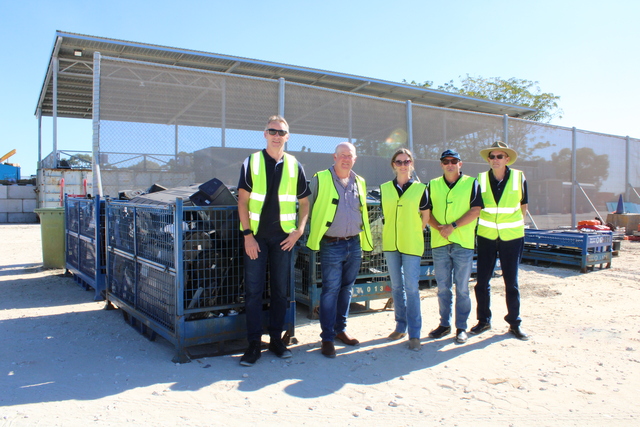Flinders Council has a very close relationship with its community. While other areas need to work hard to build community spirit and encourage participation, willingness to work together and volunteerism is second nature for this island community. This is vital as, due to its location, Flinders has few opportunities to resource share with other Local Governments. This means Council is very much reliant on its own initiative.In 1999, when the Tasmanian Government announced that it wished to negotiate new partnership agreements with Local Government to enhance service delivery, Flinders was one of the first Councils to put up its hand.
“After 20 months of community consultation and negotiations with the State Government, in October 2000 we became the second Council to formalise our agreement,” said Council’s General Manager, Lee Connors. “This timeframe enabled us to refine the issues we wanted addressed, as much as what the Government wanted to achieve. The process has led to a better understanding and improved relations between ourselves and the State Government.”
He said that a major benefit has been the greater understanding by both parties of how government works on the island. In particular, the State Government recognising the limited resources on Flinders, that is, if Council was not able to provide a service it would not happen.
“Partnerships such as this take time and effort, first to get it right, then to oversee and implement it,” Lee Connors said. “In addition to monthly progress reports, last December saw the first full year review undertaken. This identified issues that have been addressed and new ones that can now be taken on board.”
A major outcome of the agreement has been establishing a communication protocol. This means that every time a State Minister, Member of Parliament or Head of Department visits Flinders, the visit must include some contact with Council.
Furthermore, a formalised arrangement with the Department of Infrastructure, Energy and Resources has established Council as the preferred contractor for the maintenance of main roads. “This has given us certainty in planning our staff, plant and equipment,” Lee Connors said. “We know that work to a predetermined value will occur and when.”
Energy costs are a major issue with all fuel needing to be shipped into Flinders. Electricity is produced from diesel powered generators, with consumers having to pay a flat tariff of 18.4 cents per unit. The State Government has the ongoing cost of subsidising this service, and fluctuating diesel prices are a concern. As a result, the State Government is looking at alternative renewable energy sources, particularly wind power.With strong onshore winds known as the ‘Roaring Forties’, this is a viable option. Battery technology would provide backup when there is no wind.
Education on Flinders Island caters for kindergarten to Year 10. Students wishing to complete years 11 and 12 had to leave the Island to do so. The agreement has also lead to the setting up of a skills centre to cater for young people who are not seeking university entrance. This means they do not have to leave Flinders to complete their education. Through distance education they can also undertake TAFE courses.







